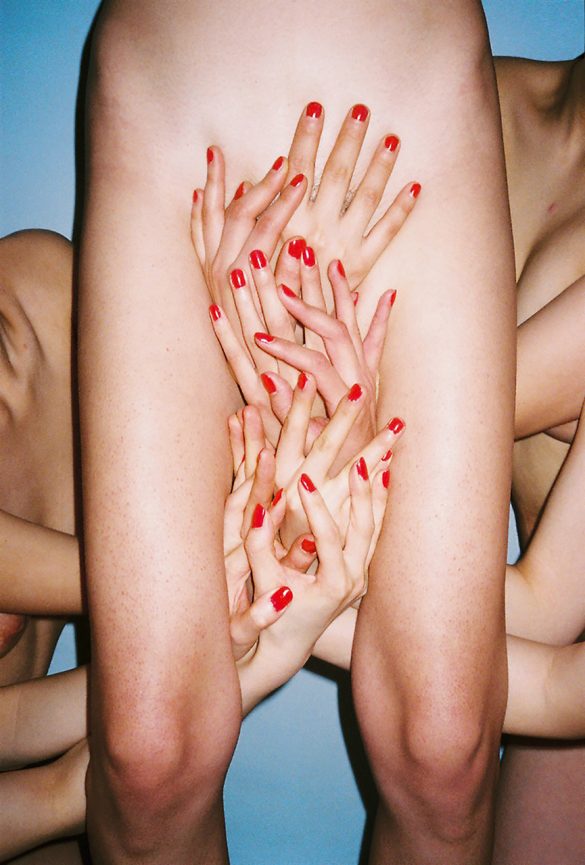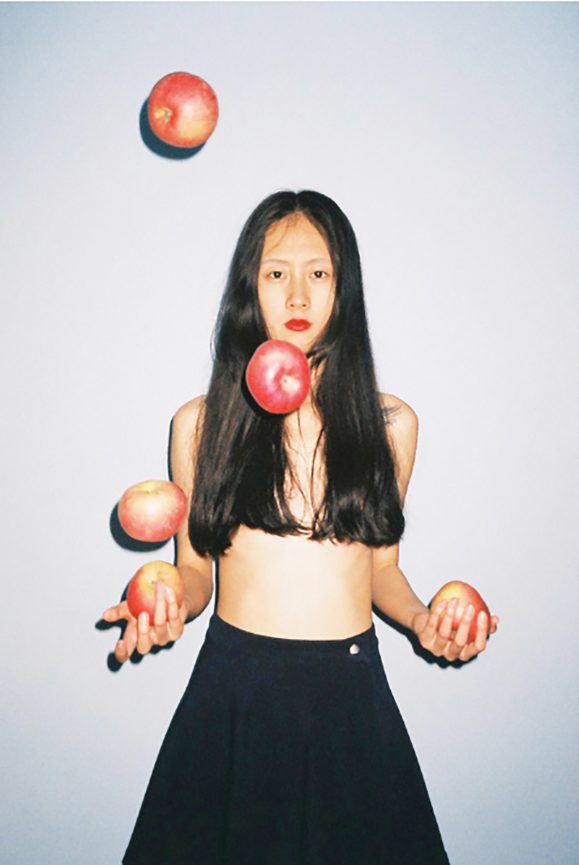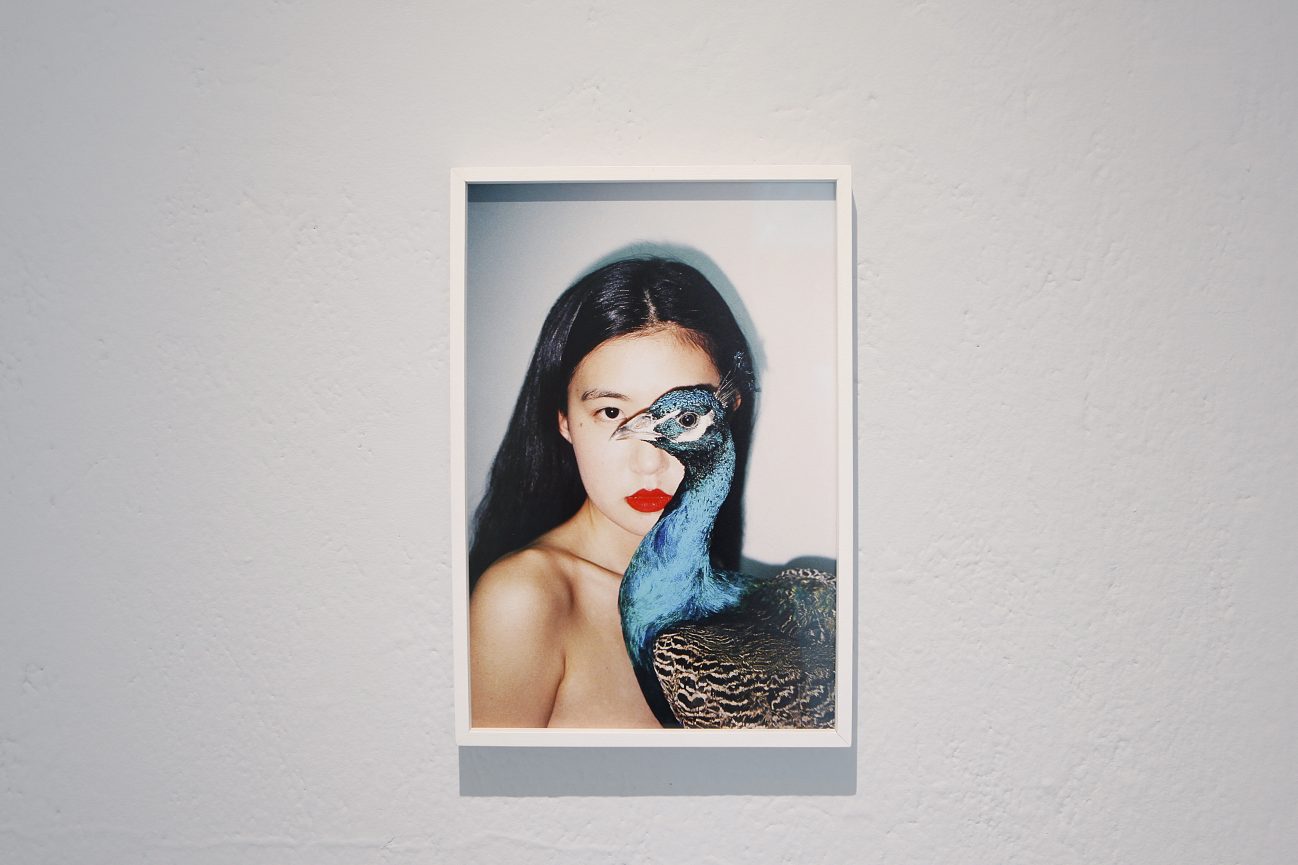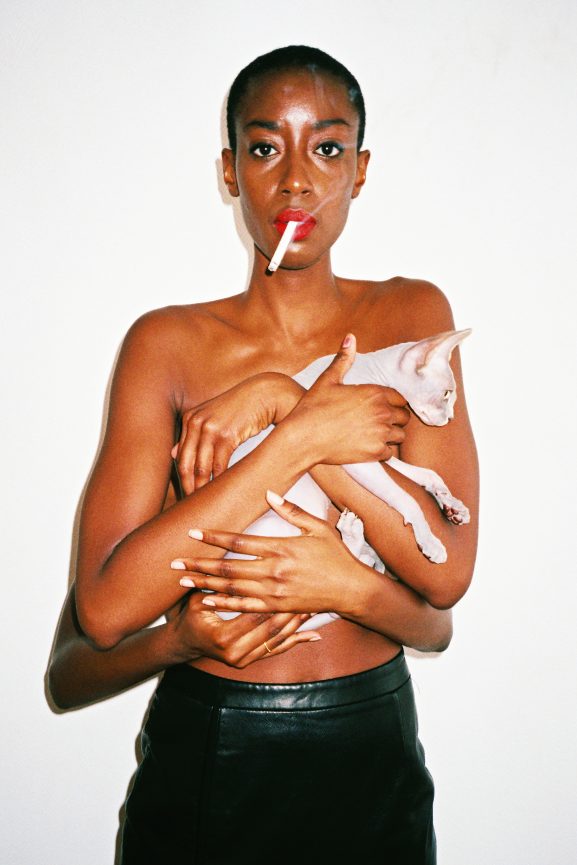by Daniela Mericio
_
“If life is a bottomless abyss, when I jump, the endless fall will also be a way of flying” wrote Ren Hang in 2017, the same year in which, on February 24, he took his own life. He wasn’t even thirty years old – he would have turned 30 shortly after, on March 30 – but he had had time to become a celebrity in the world of contemporary photography, a cult author and a symbol of free artistic expression against all forms of censorship.
In his brief, dazzling career, the young photographer and poet, born in Changchun, in northeastern China, was arrested several times and his web presence often obscured. Ren Hang did not actually consider himself a militant opponent nor did his photographs have an explicit protest intent, but his nudes, elegant and playful at the same time, refined and impertinent, suspended between purity and provocation, were an offence in a country where nudity, considered obscene, is assimilated to pornography and pornography is illegal.
“I do not think nudity is challenging – nudity is common, everybody has it”, is one of his most famous statements. And even more aware and explicit: “Sex is taboo in China. […] Why can’t we talk about sex in public? Are nude bodies shameful? We ought to be proud of our own bodies.”

Ren Hang was, in spite of himself, a spokesperson for the new Chinese generations, their anxieties and their rebellion against a conservative social context and a repressive regime. He left a consistent body of images, with a personal and unmistakable style, and a sense of emptiness.
After his death, his popularity continued to grow and exhibitions followed one after the other in several important museums and foundations: at the MdbK in Leipzig (2017), at the MEP in Paris (2019), at the C/O Gallery in Berlin ( 2019) and in the summer of 2020 at the Luigi Pecci Center for Contemporary Art in Prato. And now at the Sozzani Foundation which, until November 29, 2020, will host, for the first time in Milan, an exhibition dedicated to the work of the Chinese photographer. On display we’ll find 80 photographs, among the most famous ones, and two videos (The art of taboo, 2013 and I’ve got a little problem, 2017): two documentaries in which not only we can listen to some interviews with Ren Hang but also see him at ‘work, on improvised and essential photographic sets, set up in his room or in the park at night, while his models are putting on make-up or are busy keeping bizarre postures.
The compositions of his shots are studied in detail, but there is an aspect of spontaneity, of extemporaneousness in the art of Ren Hang, a permeability to the stimuli that the situation offers every time and from which the photographer is ready to get inspiration. His path to fame begins when, as an advertising student in Beijing, to “kill time”, he began to photograph friends and roommates with a compact and cheap 35mm; he would then recruit his models online, through social networks, until, as his fame grew, he began to receive requests from young admirers eager to pose for him.

His images revolve around the themes of sexuality, identity, desire and mainly portray nudes of young women and men, often capturing them in unusual positions and perspectives: bodies intertwined almost acrobatically, overlapped nearly as an optical effect, lined up to form graphic lines in which nudity is dissolved and almost abstract. Photographs can be surprisingly innocent as well as subtly disturbing or downright provocative. Sometimes they are pervaded by a dreamy and surreal atmosphere, more often they are bold, explicit, but not vulgar, because we perceive the detachment that the photographer’s eye maintains towards his models, although during the shooting the interaction was intense, lively, complicit in building a real performance. The subjects are photographed at home, in a room whose wall offers a neutral backdrop, in the bathtub or on a terrace, while jumping or clinging to each other, naked, against the blue of the sky or an urban skyline; they are filmed outdoors, at night, immersed in nature, in the green, hanging from a tree or hugging it, surrounded by the darkness of a pond or by lotus leaves.
The genitals are often exhibited, sometimes protagonists – like the pubis with a red heart drawn around it – and some shots are ironic, paradoxical – like buttocks lined up like the dunes of a desert. The raw, intrusive use of the flash spreads a touch of uniform, brilliant brightness, in which the figures are almost frozen, there is no room for shades or for soft, voluptuous plays of light and shadow. On faces and snowy white bodies, almost as if made of porcelain, red-lacquered nails and scarlet lips stand out, offering a vivid chromatic contrast. Plants, flowers and fruits – from lilies to cherries – with their bold colours, are among the favorite props, along with animals. Iguanas, snakes, cats, swans and other birds are often present in the composition, placed in direct contact with the human body: they add a sensual and sensorial note, recalling, very often, myths and motifs of Western culture.

In front of the images on display, two different souls seem to reveal themselves to the observer, the one that portrayed a young ephebic man, with an innocent expression, with his face surrounded by a flight of butterflies; and the one that has immortalized a boy’s face with his eyes covered by the penises of two of his peers, standing next to him, creating a perfectly symmetrical composition. There is no contradiction, however, because, according to Ren Hang, “human beings come into the world naked, so the naked body represents the original version of people” and by photographing nudity one can grasp the more fragile and authentic side of human beings, the essence of their nature. Ren Hang simply expresses his reality, his vision, unconventional and provocative, which is not welcome in the cultural and political context that surrounds him: “I don’t consider my work as taboo, because I don’t think much about the cultural or political context. I don’t intentionally try to push limits, I just do what I do.”
The exhibition at the Sozzani Foundation dedicates a room, the small gallery on the lower floor, to an important aspect of Ren Hang’s work, his collaboration with some of the main international fashion magazines, creating shootings for publications such as Beauty Papers, FFF Zine, Elsewhere, Modern Weekly. In addition to some contact sheets, you can admire a selection of 80 layouts, commissioned between 2014 and 2017, full of the themes dear to the photographer. His bold approach, his singular style were an irresistible appeal to the world of fashion, a universe in which Ren Hang was able to explore new directions while remaining true to himself. Among the magazines on display there is also Antidote, which in 2016 chose the young Chinese photographer to visually interpret the monographic issue Freedom. Yan Weber, creative director of the magazine, said: “I selected Ren Hang, an artist who embodies this notion of freedom, freedom of the body, freedom of expression but also the freedom to work itself.”

Ren Hang’s images are echoed by his words, expressed in poems, small, short melancholic haiku that describe love, desire, feelings and moods with the dense conciseness typical of these poems; and the diary, where his dark side finds space, in a constant struggle against the depression that will lead him to suicide. A few quotations stand out on the walls of the Milanese exhibition in correspondence with the photographs, casting a shadow of despair on an apparent lightness:
Sometimes words can’t leave my mouth
But it’s not because I have nothing to say
Sometimes I can’t go out
But it’s not because there are no more roads to wander
Sometimes I just want
To lie down quietly for a while
(10.01.2013)
REN HANG, PHOTOGRAPHY
In cooperation with:
OstLicht. Gallery for Photography, Vienna
Stieglitz19, Anversa
The Estate of Ren Hang
Fondazione Sozzani
Corso Como 10, Milano
13 September – 29 November 2020
Mon – Sun: 11:00 am – 8:00 pm
October 8, 2020




